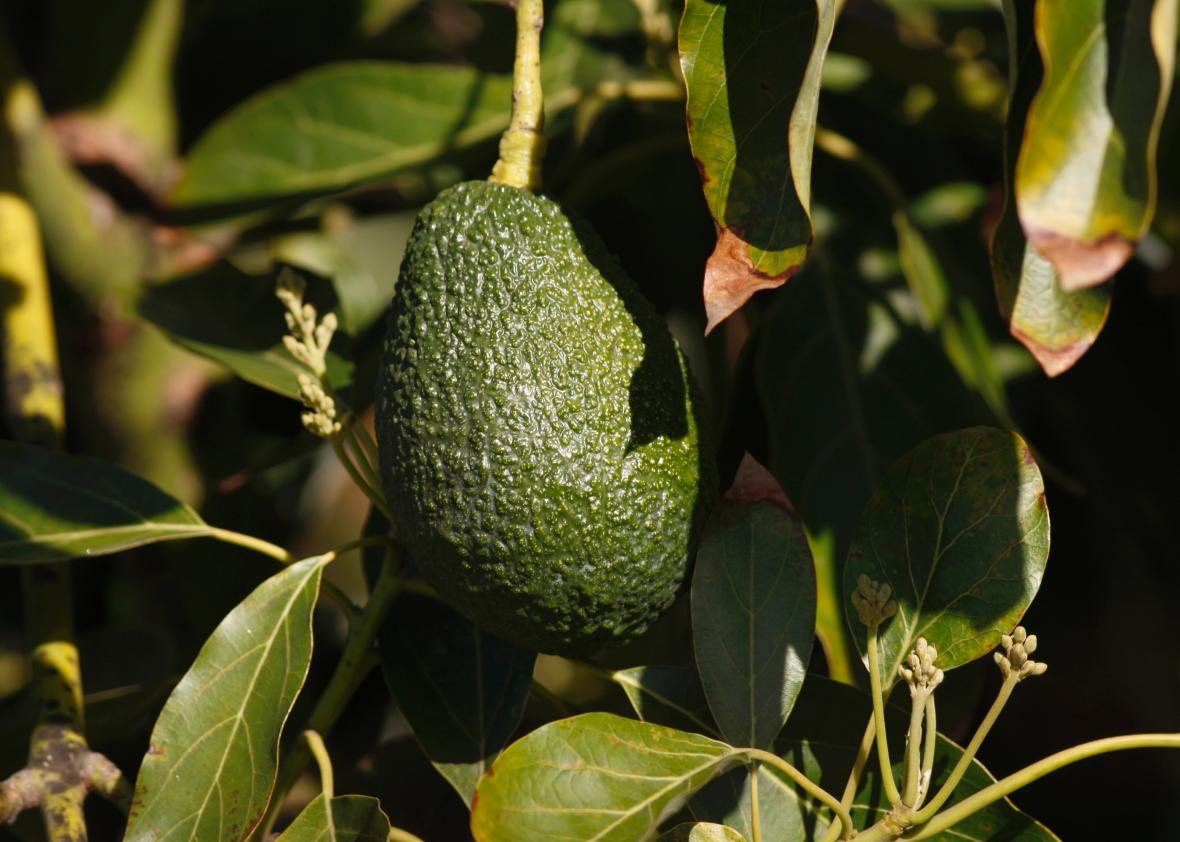Avocados in Florida Are in Trouble. But Drones Might Help Save the Guac.

Photo by David McNew/Getty Images
Drones aren’t only for spying on Kanye West and getting in the way of firefighters. The Tampa Bay Times had a great story Wednesday on how researchers at Florida International University are using drones in tandem with disease-sniffing dogs in order to help Florida farmers preserve the state’s imperiled avocado harvest. Many of the state’s avocado trees have recently been ravaged by redbay ambrosia beetles, which bore into trees and infect them with a fungus that causes laurel wilt disease—which, if left unchecked, will cause those trees to die. While Florida is not a major avocado producer, some fear that the state’s laurel-wilt problem is a harbinger of broader disaster.
“Farmers in [California and Mexico] are terrified of what destruction the redbay ambrosia beetle might wreak. They have reason to worry—the beetles are on the move, having been found as far north as North Carolina and as far west as Texas,” writes Times food critic Laura Reiley. “If we do nothing, kiss our guacamole goodbye.”
“No! Not our guacamole,” America’s burrito-eaters cry in unison. Not to worry: The FIU team is on the case. Working out of avocado groves in Miami-Dade County, they first use camera-equipped drones to scan the treetops for telltale color changes that might indicate laurel wilt. Once a stand of stressed trees has been found, disease-sniffing dogs are loosed into the groves to pinpoint the infected trees before the symptoms are visible to the naked eye. Avocado farmers can then attempt to contain the spread of laurel wilt by felling the sick tree and treating its neighbors with a fungicide. (They can also choose to burn the entire grove to the ground, abandon all their worldly possessions, and go seek work on a tramp steamer somewhere. It’s all a matter of perspective, I guess.)
Anyway, though the FIU avocado initiative still qualifies as a small pilot project, it’s worth noting and keeping an eye on—both as a worthwhile initiative and as an example of how drones are being used for agricultural purposes. All around the country, farmers are starting to use drones to keep closer watch over their crops and to identify and address potential problems—blight, infestation, hungry drifters—more quickly than ever before. These are practical examples of how drones are being used to make the world a better place. And they deserve more publicity than they’re getting.
One theme that has recurred in my recent coverage of drones is the extent to which so many normal people seem to hate them. The disparity is stark: As entrepreneurs and tech companies wax rhapsodic about the many ways in which the world will change once drones take en masse to the skies, everyone else seems intent on keeping those drones out of the skies, either with angry gunplay or by force of law.
If drones are to ever become as accepted by the general public as they are by tech companies, then drone supporters need to do a better job publicizing all the good things they can do. Drones don’t just take your jobs and your photographs—they can also help make your burrito taste a little bit better. Nobody wants to be spied on from above. Almost nobody really wants drone delivery. But everybody wants guacamole.
This article is part of a Future Tense series on the future of drones and is part of a larger project, supported by a grant from Omidyar Network and Humanity United, that includes a drone primer from New America.
Future Tense is a partnership of Slate, New America, and Arizona State University.


